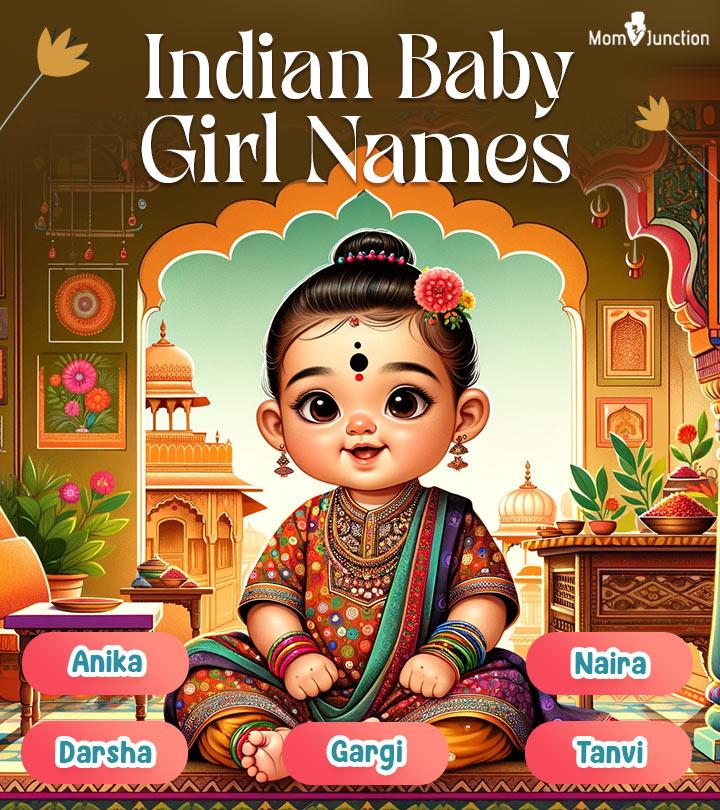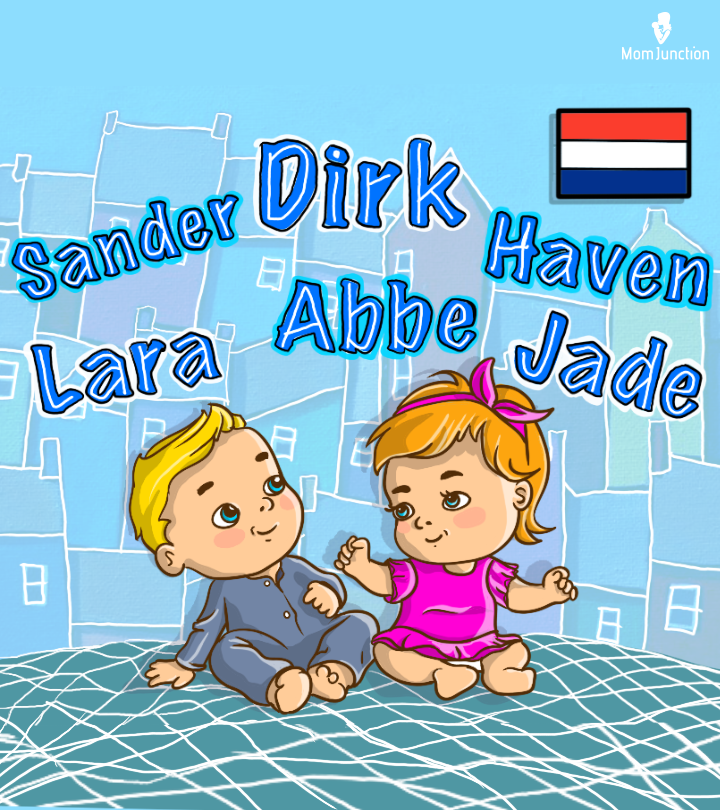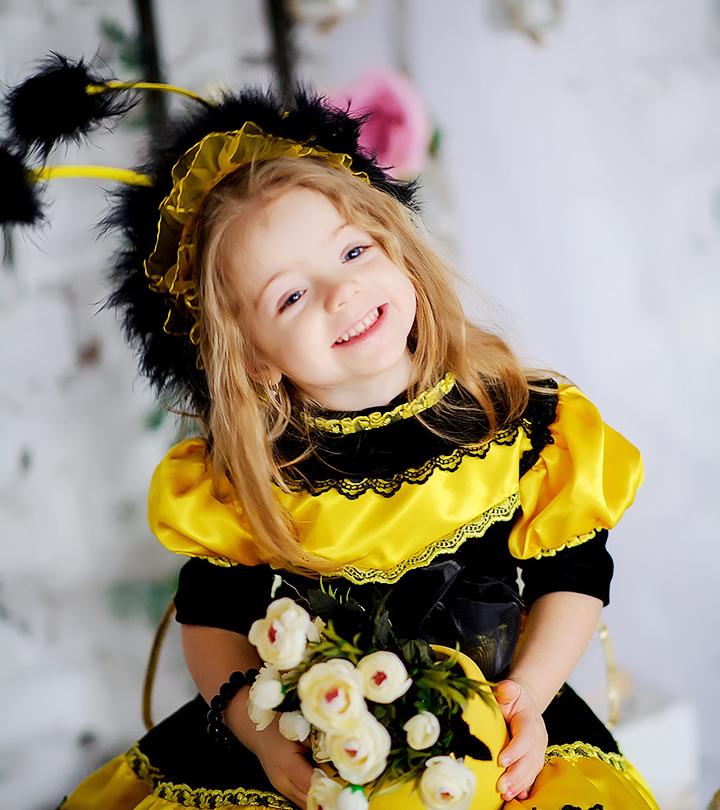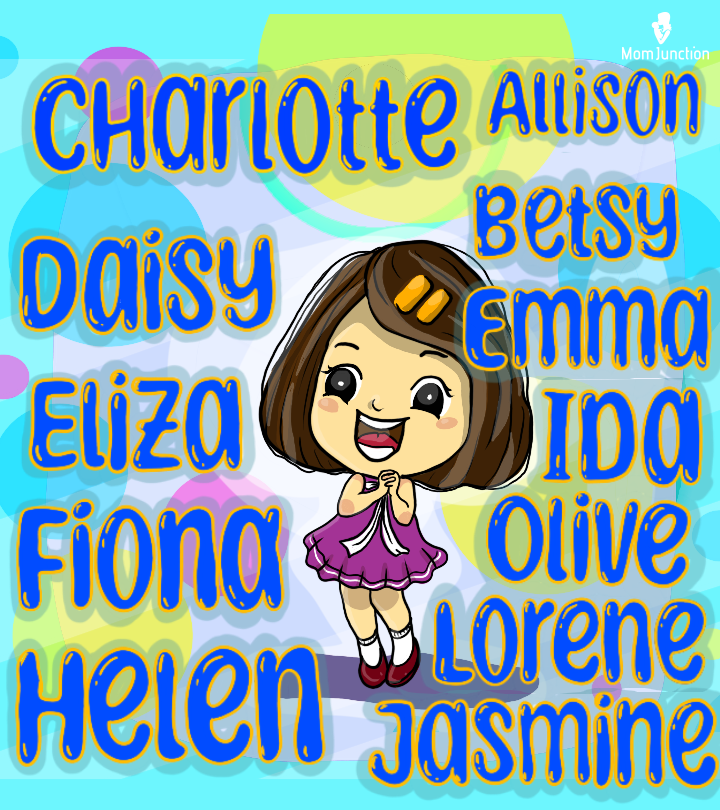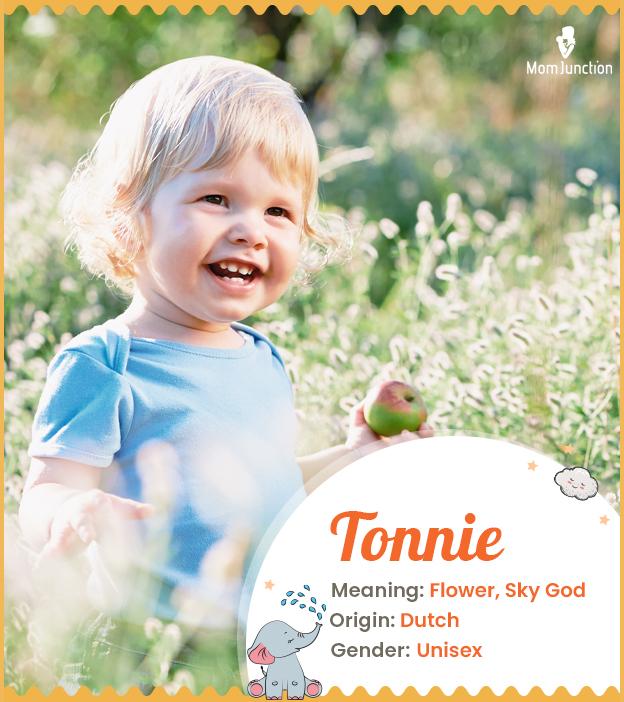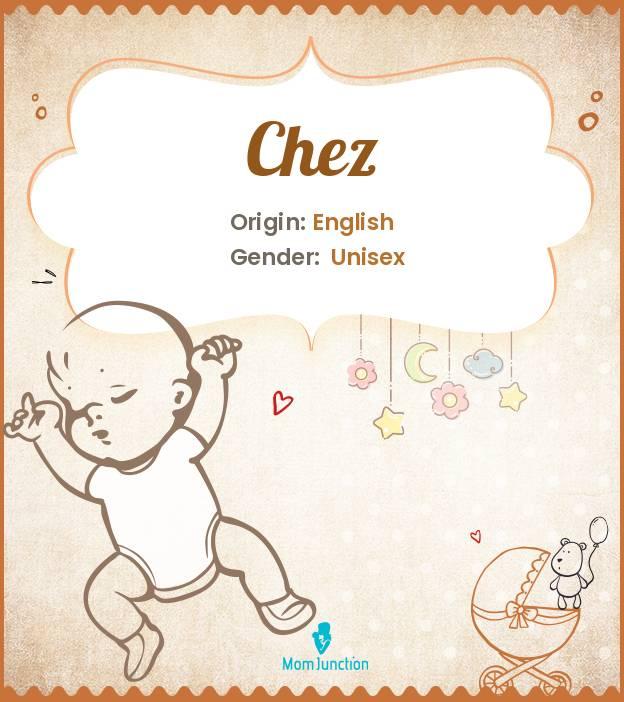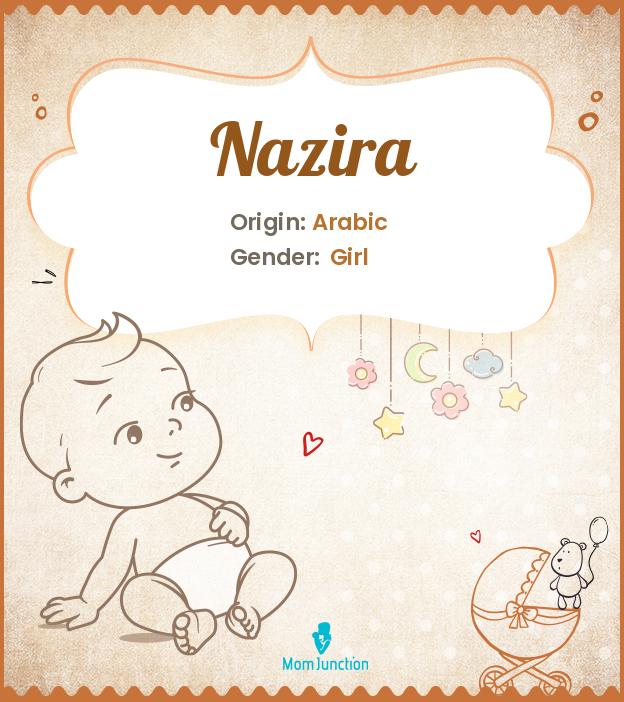
Image: Shutterstock
Belgium, like many other European countries, is an amalgamation of various cultures and languages. Belgian surnames stand as proof of this diversity. The majority of the country’s population consists of the Flemish community, with their roots in Flanders, and the French, with their roots in the Walloon Region. There also exists a small German community. Moreover, Belgium is bordered by the Netherlands, France, Germany, and Luxembourg, all of which have had distinct influences.
Most surnames are either toponyms, patronyms, or occupational names. Also, Belgian names often contain a tussenvoegsel, a family name affix between the first and the last name, such as the term “van” in van Dyck. Although this affix is believed to be a part of the surname in English-speaking countries, most Belgians consider it an entirely separate naming element. Another point to note is that many Belgian surnames have similar spellings because they share the same root, for example, Hendrix and Hendrickx (1). If you want to learn more about the colorful world of Belgian last names, we have brought you a curated list below.
150+ Popular Belgian Surnames, With Meanings
Belgian surnames range from popular, used by the common folk, to rare, used only by noble families. These surnames also convey which part of the country a person belongs to, whether it is Flanders, Walloon, or Brussels.
Common Belgian Surnames
Some surnames have stood the test of time and can be recognized by almost everyone. Here is a list of some common Belgian surnames.
1. Ackermans
Derived from the Dutch Ackerman, the surname comes from the occupational name akkerman, meaning ‘plowman.’ It was frequently used in the Netherlands and soon was adopted in Belgium, Sweden, and Germany, in their unique ways.
2. Daems
A Dutch patronymic surname, Daems comes from the personal names Daem or Daam, short for Adam, Damasus, or Damianus. It is quite common in the Belgian province of Antwerp.
3. De Meyer
De Meyer, and its other spelling variants, is a Dutch-origin occupational surname used commonly in Flanders. It refers to the role played by an English Mayor.
4. Gheysens
Gheysens is the Belgian form of the Dutch patronymic surname Geysen or Geijsen. It means ‘Gijs’ son’ and is prominently associated with Chris Gheysens, an American businessman.
5. Goossens
Another Dutch-origin patronymic surname, Goossens stands for ‘son of Goos’ or ‘son of Goossen.’ This surname is incredibly popular in the country, often featuring among the top 10 list of popular Belgian surnames.
6. Govaerts
The last name has German origins, from the North German Gövert. It comes from the Germanic personal name Godfried, meaning ‘God’s peace.’
7. Gysbrechts
Gysbrechts comes from the German surname Giesbrecht, derived from a Germanic personal name. It combines gisil, meaning ‘pledge’ or ‘noble offspring’ with berht, meaning ‘bright’ or ‘famous.’
8. Heylen
A Dutch-origin patronym or matronym, Heylen is most commonly found in the Antwerp Province. It comes from the archaic Germanic given name Heile, meaning ‘strong in battle.’
9. Huybrechts
The surname also has German roots, derived from a Germanic personal name, possibly Hubert. The name indicates ‘bright heart’ or ‘bright mind,’ representing knowledge and enlightenment.
10. Ingels
Ingels or Engels is a Dutch, German, and Flemish-origin patronymic derived from Engel. The name denotes ‘angel’ or ‘messenger.’
11. Isebaert
Isebaert comes from German origins. It contains the Germanic elements is, meaning ‘ice,’ and the suffix berht, meaning ‘bright’ or ‘famous.’
12. Janssen
A Dutch patronymic surname, Janssen or Jansen is quite common in Belgium. It means ‘son of John,’ and is a cognate of the English patronym Johnson.
13. Jaspers
Jaspers is a Dutch-origin patronymic surname meaning ‘son of Jasper.’ The surname is well-recognized because of its association with German-Swiss psychiatrist and philosopher Karl Jaspers.
14. Kennes
Kennes is a patronymic surname with occupational origins meaning ‘son of Kenn.’ The name likely originates from the Old French chien, meaning ‘dog,’ referring to someone who kept or trained hunting dogs.
15. Knockaert
The Dutch-origin surname comes from the word knockaard, a descriptive term for someone who is ‘unmanageable,’ ‘headstrong,’ or ‘stubborn.’ It originated as a nickname and eventually became a well-liked surname.
16. Kusters
A German-origin patronym meaning ‘Kuster’s son,’ Kusters has significant connotations. The root Kuster describes the occupation of a churchwarden, who administered a church’s treasury.
17. Maertens
Maertens is a Flemish and Dutch patronym derived from Maerten, a variant form of Marten or Martin. It comes from the Latin Martinus, describing Mars, the Roman god of war and fertility.
18. Moens
Another Dutch-origin patronym, Moens means ‘son of Moen.’ Moen is a common diminutive of Simon used in the Eastern part of Flanders.
19. Naessens
Naessens is a patronym rooted in Dutch, meaning ‘son of Naes.’ Naes or Naas is a Dutch form of the Latin name Donatian, meaning ‘God-given.’
20. Neyens
Neyens is a Flemish patronym derived from a vernacular form of the French personal name Noudin, derived from Arnoud, meaning ‘eagle ruler.’ The surname may also originate from the German and Luxembourgish Neuen, derived from the German word for ‘new.’
21. Ooms
Ooms is a Dutch-origin surname derived from the term oom, meaning ‘uncle.’ Its cognate is Oomen and it may also originate from the given name Omaar.
22. Reynaert
The surname has its roots in the German Reinert, based on an old Germanic personal name. The name contains the elements regin, meaning ‘counsel,’ and hardt, denoting ‘brave,’ ‘hardy,’ or ‘strong.’
23. Rombouts
Rombouts is a patronymic surname derived from the Dutch given name Rombout. It contains the Germanic Old Saxon elements hrom, meaning ‘fame,’ and bald, meaning ‘brave.’
24. Schmitt
Image: Momjunction Design Team
Schmitt has German roots from the surname Schmidt, referring to ‘blacksmith.’ It may have arrived in Belgium through France, as Schmitt is a common surname in Alsace and Lorraine.
25. Snijders
An occupational surname with Dutch roots, Snijder refers to a ‘cutter,’ or someone involved in the profession of cutting, like a tailor or a woodcarver.
26. Thielemans
Thielemans is a patronymic surname rooted in the Dutch personal name Tieleman, a diminutive of Theodorus, meaning ‘God’s gift.’ The patronym has many variants, like Thielman, Tilleman, and Tillemans.
27. Thys
Thys is a Dutch-origin surname from the Flemish name Thijs. Thijs is a diminutive of Mathijs, the Dutch form of Matthew, meaning ‘gift of God.’
28. Timmermans
A Dutch occupational surname, Timmermans means ‘carpenter’s.’ It is a relatively common surname in Belgium and the Netherlands.
29. Vandenbroeck
Vandenbroeck comes from the Dutch Van den Broeck and is a toponymic surname popular in the provinces of East Flanders and Antwerp. Broeck is an archaic spelling of broek, meaning ‘swamp.’
30. Van Dyck
Van Dyck or Vandyck is the Belgian form of van Dyke. It originates from the Dutch toponymic surname Van Dijck, meaning ‘from the dike.’
 Did you know?
Did you know?31. Verstraete
Verstraete, along with its counterpart Verstraeten, is a Dutch-origin toponymic surname. It originates as a contraction of van der Straate(n), meaning ‘from the street,’ and is popular in Flanders.
32. Wijns
It is a patronymic surname rooted in the Dutch Wijnen or Wynen. Wijn is a rare personal name derived as a diminutive of Boudewijn and Wijnand, meaning ‘brave, bold friend’ and ‘battle courage,’ respectively.
33. Yperman
Yperman is a toponymic surname derived from Ypers, a Belgian city in West Flanders. The city has a significant history related to the Battle of Ypers in World War I, between the Allied Forces and Germany.
34. Zonneveld
Zonneveld is a cheerful Dutch-origin toponymic surname translating to ‘sun field.’ This surname has many variations, like Sonneveldt, Sonneveld, Sonneveldt, Zonneveldt, and Van Zonneveld.
Old Belgian Surnames
Some last names have historical origins, dating back to before the Flemish economic immigration, and even further, to Latin roots. Read on to learn more about such Belgian surnames.
35. Baert
Baert is a Flemish surname with a long history of usage in East and West Flanders. It is likely a patronym, meaning ‘son of Baert,’ although it may also be an occupational surname derived from baert, ‘beard,’ referring to those working as a barber.
36. Bogaert
The Belgian surname has toponymic and occupational origins and is rooted in Flemish. It comes from the word boomgaard, meaning ‘orchard,’ referring to someone living near an orchard or working in one.
37. Ceulemans
Also spelled as Keulemans, Ceulemans is a common Belgian surname popular in Antwerp. It has multiple meanings: as a topographic name, it may come from the German city Cologne; as a toponym, it may come from keule, meaning ‘hollow’ or ‘depression;’ and as a patronym, it may come from Cole, a short form of Nicholas.
38. Coenen
Coenen is a patronymic surname with Dutch roots, translating to ‘son of Coen,’ or ‘son of Conrad.’ It is quite an old surname widely used in Dutch and Belgian Limburg. Coen means ‘brave,’ while Conrad connotes ‘brave counsel.’
39. D’Hondt
It is a Dutch surname popular in East Flanders. D’Hondt comes from de Hond, referring to ‘dog,’ or it may be a toponym from the Honte, a bay in The Netherlands.
40. De Mol
De Mol or Demol is a Flemish surname from Mol, a Dutch surname meaning ‘mole.’ It can also be a patronym from Molle, or a toponym from Mol, a municipality in the Antwerp Province.
41. Elsen
A well-known Belgian surname, Elsen has roots in German and Dutch Van Elsen, a habitational name from North Rhine-Westphalia. In Flemish and Dutch, it may come from places named Elzen in Brabant and Liège in Belgium. It may also be a topographic name from els, meaning ‘alder.’
42. Franck
A surname with a long history of usage, Franck has German, Danish, and Dutch roots as a variant of Frank. The name means ‘free’ or refers to a ‘Frenchman.’
43. Nijs
Nijs is a Dutch patronymic surname from the personal name Nijs. It is derived from Denis or Denijs, which refers to a ‘follower of Dionysus,’ a Greek god.
44. Opsomer
Opsomer or Opsommer has German roots and comes from the words op, meaning ‘above,’ and sommer, meaning ‘summer.’ It is likely a toponym for people who lived on higher ground during summer.
45. Plettinckx
The Belgian surname is likely derived from an occupation. Plettincks may refer to someone involved in the process of metalworking or indicate a family history of metal workers.
46. Quirynen
Quirynen is likely a patronymic surname derived from Quirinus, an early Roman god of the Roman state. It may also be an epithet for Janus, the god of doorways.
47. Raes
The Raes surname has Flemish origins. It comes from the Germanic personal name Razo, derived from the element rad, meaning ‘counsel.’
48. Renders
Renders is a German toponymic surname from Renda, in Hesse. It may also be an occupational name for someone in the profession of lacerating or tearing, possibly a butcher.
49. Saelens
Saelens is a Flemish patronymic surname derived from Salomon or Solomon. The name has Hebrew origins and means ‘peace.’
50. Van Damme
Van Damme comes from the Dutch toponymic surname Van Dam, meaning ‘of the dam’ or ‘of the water.’ In this sense, van has a connection with the nobility, and dam comes from Amsterdam in the Netherlands.
51. Van de Walle
Van de Walle is a Dutch-origin toponym used in concentrated forms like VandeWalle or Vande Walle in Flemish communities. It refers to someone who comes ‘from the river embankment, rampart, or quay.’
52. Van Hoof
The Dutch-origin toponymic surname contains the elements hof or hoef, meaning ‘homestead.’ It may also come from place names ending in -hof, -hoof, or -hove, such as Hove in Antwerp, where this surname is widely used.
53. Vizard
Vizard has Old French or Norman origins from Wischard, derived from the personal name Guischard. It has Germanic roots and means ‘battle strength.’
54. Ysebaert
Image: Momjunction Design Team
Ysebaert is the older version of the surname Isebaert. It has German origins and comes from the element is, meaning ‘ice,’ and berht, meaning ‘famous’ or ‘bright.’
55. Zegers
Zegers is a patronymic surname with Dutch and German origins, meaning ‘son of Zeger.’ Zeger comes from Germanic roots with the elements sigi- meaning ‘victory,’ and -her, meaning ‘lord.’
Popular Belgian Surnames
Some surnames consistently find themselves at the top of the charts, ranking the number of people who share them. Check out some of the most popular Belgian surnames below.
56. Aerts
Aerts is a Dutch and Flemish patronymic surname derived from the personal name Aert. It is the shortened form of Arnaud or Arnaut, meaning ‘eagle power.’
57. Bosmans
Bosmans is a surprisingly popular surname in Belgium, despite its Dutch and Afrikaans origins. It is a toponymic surname meaning ‘woodmen,’ referring to those who likely lived near a wood.
58. Claes
Claes is one of the most popular surnames in Belgium. It is considered a masculine personal name, as a version of Nicholas, and as a patronymic surname. It means ‘victory of the people.’
59. Cools
Cools is a Dutch patronymic surname meaning ‘son of Cool,’ prominently used in the Antwerp region. Cool is an archaic nickname for Nicholas, meaning ‘victory of the people.’
60. Coppens
A Dutch and Flemish genitive patronymic surname meaning ‘son of Coppe.’ Coppe is an old nickname for Jacob, meaning ‘supplanter.’
61. De Backer
A Flemish occupational surname, De Backer is also spelled as Debacker. It comes from the Middle Dutch backere, meaning ‘baker,’ combined with de, meaning ‘the.’
62. De Clercq
With Dutch roots, De Clercq or Declercq is a Flemish occupational surname incredibly popular in East and West Flanders. As is apparent from its spelling, the surname translates to ‘the clerk.’
63. De Cock
De Cock, also spelled as Decock, Dekock, or De Kock, is a Flemish and Dutch occupational surname. Derived from De Kok, it means ‘the cook.’
64. De Pauw
The unique yet popular surname has Flemish and Dutch roots and comes from the word pauw, meaning ‘peacock.’ It was used as a descriptive name for a flamboyant person and as a habitational surname for someone who lived in a house marked with a peacock.
65. De Smet
De Smet is one of the most commonly used surnames in Belgium. It has Flemish origins and is an occupational surname derived from smet, meaning ‘smith.’
66. De Vos
Devos is a surname with Dutch origins and means ‘the fox.’ It is incredibly popular in the Flanders region, with East Flanders spelling it as De Vos and West Flanders spelling it as Devos.
67. Evrard
Evrard is a French and Walloon surname derived from the Germanic given name Eberhardt. It comes from the elements ebur, meaning ‘wild boar’ and hard, meaning ‘brave,’ ‘hardy,’ or ‘strong.’
68. Geerts
A Dutch patronymic surname meaning ‘son of Geert.’ Geert comes from the German personal name Gerd, meaning ‘brave with the spear’ or ‘strong spear.’
69. Goussens
Goussens is considered the eighth most popular surname in Belgium. It has Dutch origins and is a patronymic surname meaning ‘son of Goos’ or ‘son of Goosen,’ which further translates to ‘friend of the Goths.’
70. Hermans
A Dutch-origin patronymic surname, Hermans is quite commonly used in Belgium. It comes from the personal name Herman, meaning ‘army man.’
71. Jacobs
Jacobs is a common surname with Anglo-Saxon origins meaning ‘son of Jacob.’ Jacob has Hebrew roots from Yaakov, meaning ‘holder of the heel’ or ‘supplanter.’
 Trivia
Trivia72. Janssens
The surname has Flemish, Dutch, and North German origins and is considered the second most common surname in the country. Janssens is a patronym, the genitive form of Janssen, and means ‘Jan’s son’s son’ or ‘Johnson’s son.’
73. Lefebvre
Lefebvre is a concatenation of the French le Fevre. Fevre is an occupational surname denoting an ‘ironworker,’ ‘smith,’ or ‘craftsman.’
74. Lemmens
Lemmens is a patronymic surname of German origin, derived from the name Lemme, a diminutive of Lambert. The name comes from the Germanic Adelem, meaning ‘noble protection.’
75. Maes
The third most popular surname in Belgium, Maes is the Flemish and Dutch patronymic form of Maas. It is a diminutive of Thomas, meaning ‘twin.’
76. Mertens
Also spelled as Martens, Mertens is a German, Dutch, and Flemish patronymic form of Marten, popular in Belgium’s Walloon Region. It comes from the name Martin, meaning ‘dedicated to Mars.’
77. Michiels
With Flemish and Dutch roots, Michiels is a popular Belgian patronymic surname. It means ‘son of Michiel,’ where Michiel is a variant of Michael, meaning ‘there is none like God.’
78. Pauwels
A patronymic surname, Pauwels has German and Flemish origins and means ‘son of Pauwel.’ Pauwel is the vernacular form of Paul, which comes from the Latin Paulus, meaning ‘small’ or ‘humble.’
79. Peeters
The most popular and commonly used surname in Belgium, Peeters is a Dutch and Flemish patronymic surname derived from Peter, a personal name meaning ‘rock.’
80. Segers
Segers has Dutch origins and is a patronymic surname meaning ‘son of Seger.’ The archaic name Seger has roots in the Germanic elements sigi and her, meaning ‘victorious lord.’
81. Smets
Smets is a Dutch-origin occupational surname prominent in the Antwerp and Flemish Brabant regions. Although it may seem too similar to Smet or De Smet, meaning ‘the smith,’ Smets comes from des Mets. It is short for des Metselaars, meaning ‘the mason’s son.’
82. Stevens
Stevens is a common surname with Norman origins. It is a patronym, meaning ‘son of Steven,’ where Steven means ‘wreath’ or ‘crown.’
83. Van de Velde
Image: Momjunction Design Team
A popular surname in Belgium, Van de Velde, Vandevelde, or Vande Velde, is a Dutch toponymic surname. It means ‘from the fields,’ denoting someone who lives near a field.
84. Van den Bossche
The surname comes from the Dutch and Flemish Van den Bosch, a toponymic surname meaning someone who lives near the woodlands. It is also a habitational name for someone originating from Den Bosch or Oudenbosch, both in Brabant.
85. Verhoeven
Verhoeven is a contracted form of Van der Hoeven, a Dutch toponymic surname. It is quite popular in Belgium and means ‘from the homestead.’
86. Vermeulen
Vermeulen is a toponymic and occupational surname with Dutch origins and means ‘from the windmill’ or ‘from the water mill.’ It is among the top 30 surnames in Belgium and is the contracted form of Van der Meulen.
87. Wouters
Ranked among the top surnames in Belgium, Wouters is a Dutch patronymic surname meaning ‘son of Wouter.’ Wouter comes from Walter, meaning ‘ruler of the forest,’ ‘ruler of the army,’ or ‘bright army.’
88. Willems
Willems is a hugely popular patronymic surname in Belgium. It has Dutch and Flemish roots and means ‘son of Willem.’ Willem is a variant of William, meaning ‘desire to protect.’
89. Wuyts
The short surname popular in the Belgian Antwerp region is a Dutch patronym meaning ‘son of Wuyt.’ Wuyt is the short form of Wouter, a variant of Walter, meaning ‘commander of the army.’
French Belgian Surnames
French speakers make up a large portion of the Belgian population, and French-origin surnames are a dime-a-dozen. Here is a list of some of the most common French Belgian surnames.
90. Antoine
Antoine is a French personal name and a French-origin surname used in Belgium. Derived from Antony or the Latin Antonius, it means ‘highly praiseworthy.’
 Quick fact
Quick fact91. Barbier
The French-origin occupational surname comes from the profession of a barber-surgeon. It is rooted in the Old French Barbier, meaning ‘beard.’
92. Berger
Berger has German origins alongside French, where it is an occupational surname from the Old French bergier, meaning ‘shepherd.’ In German and Dutch, however, it is a topographic name for someone living on or near a mountain.
93. Beaufort
The classic French surname and given name is quite popular, with its meaning of ‘beautiful fort.’ dating back to the 14th century, it emerged as a noble family name descended from John of Gaunt, the first Duke of Lancaster.
94. Charlier
With Walloon and French origins, Charlier is an occupational surname meaning ‘cartwright’ or ‘wheelwright.’ It is derived from the Old French word charrelier or char, meaning ‘cart.’
95. Dehousse
Dehousse is a rare Walloon surname of French origin. It is a patronymic, fusing the preposition de, meaning ‘of,’ with Rousse. It gained popularity with Jean-Maurice Dehousse, the first Minister-President of the Walloon Region.
96. Delcroix
Delcroix is a concatenated from the French surname de la Croix, meaning ‘of the cross.’ Alongside France, this surname is quite popular in Belgium.
97. Demotte
Demotte is a surname derived from a French toponym, DeMotte. The name goes back to the DeMotte family, a French noble family with seas in several parts of France.
98. Desmet
Desmet has both French and Flemish origins, derived from De Smet, meaning ‘the smith.’ It is an occupational surname commonly heard in Belgium.
99. Dubois
Dubois, with its French and Walloon roots, is a topographic name for ‘one who lives or works near a wood.’ It may also be a habitational name for someone hailing from places named Le Bois in France and Belgium. It is also the most common surname in Wallonia.
100. Dumont
Dumont is a classic French topographic surname denoting someone who is ‘from the mountain.’ It comes from the Old French term du mont, meaning ‘of the mount.’
101. Dupont
Dupont is one of the most popular French surnames in Belgium. It is a toponymic surname meaning ‘of the bridge,’ indicating someone who lived or worked near a bridge.
102. François
The classic French-Walloon surname is derived from the personal name Francois. It comes from the Latin Franciscus, meaning ‘a Frenchman’ or ‘a free man.’
103. Fontaine
With French origins, Fontaine is a topographic surname for those who lived near a well or a spring. Originally popular in northern and central France, it has become quite common in Belgium as well.
104. Foubert
Foubert comes from a French personal name consisting of the Germanic elements falc, meaning ‘falcon,’ and berht, meaning ‘bright’ or ‘famous.’ Besides Belgium, this surname is found in France and Canada.
105. Gérard
With Germanic origins, Gérard is a French masculine name and surname with much popularity in Belgium. It comes from the elements ger and hard, meaning ‘strong spear’ or ‘brave spear.’
106. Lambert
The surname and masculine given name has both English and French roots, from the Low German anthroponymic name Landberht. It combines the elements, land, and berht, meaning ‘bright home.’
107. Laurent
An old classic French surname and masculine personal name, Laurent comes from Latin and means ‘of Laurentum.’ It may also come from the Greek Lavrenti, which denotes ‘the shining one’ or ‘the bright one.’
108. Leclercq
A French and Walloon variant of Leclerc, Leclercq is an occupational or status name. It denotes a member of a religious organization or refers to a ‘scholar.’ To add some nuance, since only members of the clergy were allowed to be educated, any literate man would be considered a scholar. Thus, the modern meaning of Leclercq is ‘scribe secretary’ or ‘clerk.’
109. Lejeune
Lejeune has fascinating origins as a French and Wallonian nickname for a young person, or simply the younger of two people with the same name. It eventually became known as a descriptive surname derived from the French jeune, meaning ‘young.’
110. Lemaire
A French, Walloon, and Flemish-origin occupational or status surname, Lemaire means ‘the mayor.’ It refers to any local administrative official or a municipal magistrate. It may also be a descriptive surname for anyone resembling a mayor, or a nickname for the eldest son of a family.
111. Leroy
Image: Momjunction Design Team
Leroy is a popular masculine name and surname with French origins. Derived from the term le Roy, it is a powerful name meaning, ‘the king.’
112. Louwagie
Louwagie comes from the Northern French Louage and is a Flemish surname. It means ‘the pledge’ or ‘the guarantee’ and evolved as a metonymic occupational surname for a bailiff enforcing debt collection, or possibly, a pawnbroker.
113. Martin
A classic masculine name and one of the most popular surnames in France and Wallonia, Martin has Latin roots and comes from Mars, the Roman god of war and fertility.
114. Mathieu
A variant of the French given name and surname Matthieu, Mathieu is derived from the Latin Matthaeus and Hebrew Matatyahu. It means ‘gift of the Lord.’
115. Monamy
Monamy is a typical Walloon surname derived from the French term mon ami, meaning ‘my friend.’ It likely originated as a habitual expression and evolved into a surname.
116. Moreau
A French and Walloon surname, Moreau comes from Latin Maurellus, meaning ‘Moor.’ It evolved from a descriptive nickname for a dark-skinned person. It may also be derived from the old French word morel, meaning ‘brown’ or ‘black.’
117. Nuyens
Nuyens is a patronymic surname with Flemish and French roots. It means ‘son of Nuyen’ and comes from Noudin, the French diminutive of Arnoud, meaning ‘strong ruler.’
118. Petit
Petit is a descriptive surname that evolved as a nickname for a small person, or a person with a short stature. It is a transferred use of the Old French word petit, meaning ‘small’ or ‘little.’
119. Renard
Renard is a French and Walloon surname derived from the Germanic masculine given name Raginhard. Combining the elements regin and hard, it means ‘strong counsel’ or ‘strong advice.’
120. Rousseau
Rousseau originates from French and Walloon and is also used in the Flemish part of Belgium. It is a descriptive surname meaning ‘a red-haired man,’ and derives from the French word roux, meaning ‘red.’
 Point to ponder
Point to ponderBelgian Nobility Surnames
Belgium is a federal constitutional monarchy, the Belgian crown recognizes a wide range of noble titles. These include, in descending order, the princes, dukes, marquesses, counts, viscounts, barons, knights, and jonkheers. These are some of the surnames or titles used by them.
121. Beyens
Beyens is a relatively new Belgian noble family name. Classified under Barons, the Beyens family originated from Nazareth near Deinze in Flanders and were admitted into Belgian nobility in 1851.
122. Coart
The Jonkheer family Coart is a Belgian noble family descended from the Prince-Bishopric of Liège. Its legacy can be traced back to the 17th century.
123. Colruyt
The Colruyt family is among the wealthiest in Belgium, sitting at the top of the Belgian economy. The noble family is classified among the Barons and dates back to the late 19th century.
124. d’Arenberg
One of the oldest aristocratic families in Belgium, the d’Arenbergs or The Arenburg House can be traced back to the 11th century. The head of this house holds the title of Duke of Arenburg, while its members are classified as princes.
125. De Groote
De Groote is a Dutch noble surname classified under Barons. Sometimes contracted to Degroote or DeGroote, the surname means ‘the big one’ and is most common in the Flanders area.
126. De Gruben
With Dutch and German roots the De Grubens are a noble family. The surname comes from Gruben, a patronym derived from the German Grubbe, meaning ‘the brave and grim mask.’
127. De Keyser
De Keyser translates to ‘the emperor’ and is a Dutch noble surname found mostly in Flanders. It has a few spelling variations, like de Keijser, De Keyzer, Dekeijser, and Dekeyser.
128. De Lannoy
Delannoy or De Lannoy refers to a Belgian noble family and is a Walloon, Flemish, and French habitational surname. It denotes someone ‘from Lannoy,’ which refers to several places in France and Belgium.
129. De Merode
De Merode of the House of Merode refers to one of the most prominent aristocratic families in Belgium, whose members are classified as princes. Originating from the village of Merode in Germany, this noble family can be traced back to the 13th century.
130. De Witte
De Witte or DeWitte means ‘the white’ and has Dutch and Flemish origins. It primarily refers to the de Witte noble family from the Antwerp region.
131. Deligne
Deligne or Deline is a French habitational name denoting ‘from Deligne,’ referring to multiple places in France and Belgium. The surname mainly refers to the Deligne family, classified as viscounts.
132. De Sauvage
The family name has French roots and originated as a nickname for a wild or uncouth person, from sauvage, meaning ‘untamed.’ De Sauvage is recognized as a noble family in Belgium, as well as other English and Anglo-Irish knightly families.
133. Goethals
A Dutch-origin surname from the Flanders region, Goethals is used by baron and count families in Belgium. It derives from Goedaels, meaning ‘good ale,’ and may be an occupational surname for a brewer.
134. Gosselin
Gosselin comes from the Old French personal name Goscelin or Joscelin. It comes from Goss, an archaic name referring to the Geats or Goths. Gosselin is a recognized Baronic title in Belgium.
135. Guillaume
Image: Momjunction Design Team
A French-origin surname derived from William, Guillaume has Germanic origins and means ‘willful protector.’ It is recognized as a Baronic family in Belgium.
136. Harmel
The Harmel family name has German roots and is an occupational name for a furrier. It comes from the Middle High German hermel, meaning ‘ermine.’ In Belgium, the Count of Harmel is a title recognized by the crown.
137. Hendrickx
A Belgian-origin Dutch surname derived from the personal name Hendrik, Hendrickx means ‘estate ruler.’ Although not too prominent, it is recognized as a part of the Hendrickx van den Bosch family.
138. Huyghens
Huyghens is a Dutch-origin patronymic surname meaning ‘son of Hugo,’ where Hugo means ‘bright in mind and heart.’ It is recognized as a Knight family in Belgium.
139. Jolly
Jolly is a French-origin surname that is derived from a nickname for an attractive or cheerful person. It is derived from the word joli, meaning ‘cheerful,’ ‘lively,’ or ‘pretty.’ In Belgium, Jolly is recognized both as a Viscount family and as a Baron family.
140. Le Grelle
Le Grelle comes from the French word Grelle, which possibly means ‘bell.’ The surname belongs to the Le Grelle family belonging to imperial Dutch, Papal, and Belgian nobility
141. Lippens
Lippens, a Flemish and Dutch patronymic surname derived from a diminutive form of Phillip, meaning ‘lover of horses.’ In Belgium, Lippens is recognized by the Crown as a noble family name in the category of Counts.
142. Merckx
A Dutch-origin noble patronymic surname, Merckx derives from Merk or Merks, a regional form of Marcus or Mark. Mark means ‘consecrated to Mars,’ referring to the Roman god of war.
143. Nicolet
Nicolet is a French-origin noble surname derived from the given name Nicolet, a pet form of Nicholas. As a result, it denotes ‘victory of the people’ or ‘people of victory.’
144. Peltzer
A German-origin noble surname derived from Pelzer, Peltzer is an occupational name for a furrier, derived from the Middle German for bellez, meaning ‘fur.’
145. Poullet
Poullet is a surname derived from French and means ‘chicken.’ In Belgium, it is recognized as a noble title because of Viscount Prosper Poullet, a politician and the Prime Minister of the country from 1925-1926.
146. Ryckmans
A patronym derived from the Flemish form of the Dutch surname Rijkman, Ryckmans means ‘rich man’ or ‘powerful man.’ In Belgium, it became recognized as a noble title in 1962 because of Pierre Ryckmans, a Belgian civil servant and Governor-General of the Belgian Congo.
147. Terlinden
Terlinden is a noble family in Belgium with German origins and they carry the titles of Viscount and baron. The family’s genealogy can be traced back to the early 1500s.
148. Van de Werve
Van de Werve or Van der Werve is a Flemish surname referring to the House of van de Werve. It is one of the oldest noble families in Belgium, belonging to Antwerp.
149. Van der Noot
Van der Noot is a Dutch and Flemish surname with the House of van der Noot, a Belgian noble family. The Count van der Noot title was created by Charles VI in 1716 and this family currently holds the Marquess of Assche title.
150. Van Hoecke
The surname is the Belgian concatenated form of the Dutch surname Van den Hoek. It is a toponymic surname meaning ‘from the corner.’ In terms of nobility, Van Hoecke is recognized as a Knight family in Belgium.
151. Verhaegen
The Dutch noble surname originates as a contracted form of Van der Hagen, a topographic name for someone who lives near a Haag, meaning ‘hedge.’ It can also be a habitational name for anyone hailing from a place called Hage, Haag, or Ter Hagen from Belgium or The Netherlands.
Belgian surnames show how resilient and adaptable the country’s inhabitants are. Having built their country from scratch, Belgians have been brought together through their mutual passion for hard work, innovation, and appreciation for their roots. This is easily visible through occupational surnames like Smets, representing masonry workers, or toponymic surnames such as Dumont, referring to those who hail from mountainous regions. Belgians’ respect for their ancestors, their cultural and linguistic diversity, and their deference to nobility are the key aspects that help their family names shine bright with pride.
Discover More Names
When you have to choose a name for your baby, a few hundreds of names may not be just enough. Keep digging our mine of baby names until you find that one precious gem.
Frequently Asked Questions
1. Are there any regional variations in Belgian surnames?
Belgian surnames have regional variations depending on the language of the population and the distance between the towns that speak the same language. A study on surname variations indicates that geographical distance between Belgian towns can cause about 40-70% differences in the Flemish and French surnames. The study also shows that German surnames tend to be affected both by distance and linguistic differences (2).
2. How common are compound surnames in Belgium?
Compound surnames have existed in Belgium but have been most common among those of Dutch lineage. Some examples of compound surnames that can be found in Belgium are De Clerq, De Bonte, De Graaff, Den Uijl, and Kleij Van Der.
3. Are there restrictions on changing or adopting surnames in Belgium?
There are almost no restrictions imposed on changing surnames in Belgium. One may change their name either due to personal preference or marital status. Women may choose to adopt the husband’s name after marriage and in cases of divorce, they may also choose to change their surname to their maiden name. However, any name changes should follow the legal proceedings and be registered with the government.
Key Pointers
- Belgium is a European country that is known for its linguistically diverse population.
- Belgian surnames either derive from the names of places and occupations or from patronyms that are passed down through generations.
- Kusters, Schmitt, Jaspers, and Van Dyck are a few common Belgian surnames.
References
- Fritz Juengling; (2017); Names in Belgium and the Netherlands.
https://cms-b-assets.familysearch.org/08/01/352be1e9e21f9f452184cd6d5eba/names-in-belgium-and-the-netherlands-f-juengling-2017-120293-i-april-201.pdf - Isolation by Language and Distance in Belgium.
https://www.researchgate.net/publication/8898055_Isolation_by_Language_and_Distance_in_Belgium
Read full bio of Shikha Thakur
Read full bio of Srija Chanda Burman













